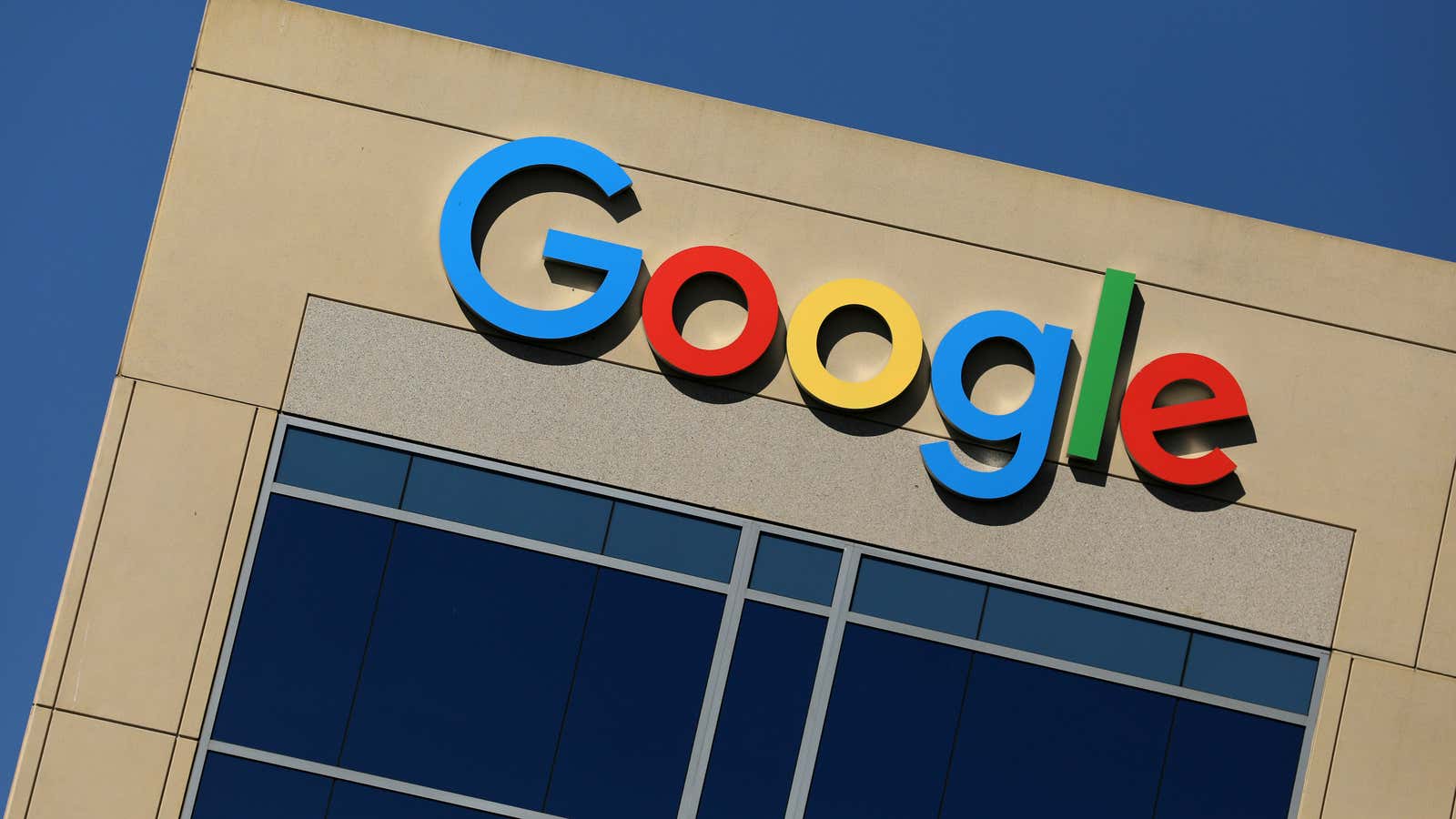When it comes to corporate slogans, Google’s “Don’t be evil” has always been refreshingly clear. The three simple words mesh an irreverent tone with a sense of morality and justice—regardless of whether the company actually lived up to it.
Yet the search giant is minimizing “Don’t be evil,” at least in its official code of conduct. According to Gizmodo and archives from the Wayback machine, some time between late April and early May, references to the slogan in the document have been removed except for one brief mention, at the end.
Although the relevant section retains much of the original language, with the “Don’t be evil” phrasing removed, on the whole, it feels quite different. A version of the code of conduct archived on April 21, with the old motto still in the preface, reads:
“Don’t be evil.” Googlers generally apply those words to how we serve our users. But “Don’t be evil” is much more than that. Yes, it’s about providing our users unbiased access to information, focusing on their needs and giving them the best products and services that we can. But it’s also about doing the right thing more generally – following the law, acting honorably, and treating co-workers with courtesy and respect.
The Google Code of Conduct is one of the ways we put “Don’t be evil” into practice. It’s built around the recognition that everything we do in connection with our work at Google will be, and should be, measured against the highest possible standards of ethical business conduct. We set the bar that high for practical as well as aspirational reasons: Our commitment to the highest standards helps us hire great people, build great products, and attract loyal users. Trust and mutual respect among employees and users are the foundation of our success, and they are something we need to earn every day.
So please do read the Code, and follow both its spirit and letter, always bearing in mind that each of us has a personal responsibility to incorporate, and to encourage other Googlers to incorporate, the principles of the Code into our work. And if you have a question or ever think that one of your fellow Googlers or the company as a whole may be falling short of our commitment, don’t be silent. We want – and need – to hear from you.
By ditching “don’t be evil,” the revised document (archived on May 4 by the Wayback Machine, and available here on parent Alphabet’s website) on the whole reads like a lot more like boilerplate corporate jargon.
The Google Code of Conduct is one of the ways we put Google’s values into practice. It’s built around the recognition that everything we do in connection with our work at Google will be, and should be, measured against the highest possible standards of ethical business conduct. We set the bar that high for practical as well as aspirational reasons: Our commitment to the highest standards helps us hire great people, build great products, and attract loyal users. Respect for our users, for the opportunity, and for each other are foundational to our success, and are something we need to support every day.
So please do read the Code and Google’s values, and follow both in spirit and letter, always bearing in mind that each of us has a personal responsibility to incorporate, and to encourage other Googlers to incorporate, the principles of the Code and values into our work. And if you have a question or ever think that one of your fellow Googlers or the company as a whole may be falling short of our commitment, don’t be silent. We want – and need – to hear from you.
The new code of conduct, Gizmodo adds, retains a single mention of the company’s motto toward the end, which reads “And remember… don’t be evil, and if you see something that you think isn’t right – speak up!” Google declined to comment on the recent change.
“Don’t be evil” originated at Google in 2001, as employees sought to define the company’s corporate values without sounding overly corporate. Yet years after the motto was conceived Google now resembles the corporate giant it once hoped to avoid becoming. Anti-trust regulators across the globe are attacking it, with some in Europe reportedly calling for the company to break up.
Even before the recent code of conduct revision though, the company has steadily moved away from the motto, at least officially. In 2015, when Google formed Alphabet to encompass its non-search business units, Alphabet’s code of conduct, which remains separate from Google’s, replaced “Don’t be evil” with “Do the right thing.”
